
— Liam Murphy
As more Chinese-built electrified cars join Australian roads, their producers look for a competitive edge in the market, with many turning to razor-sharp pricing models to lure buyers.
The 2026 Chery Tiggo 7 Super Hybrid five-seat SUV is the latest new market entrant to get the treatment, cinching the title of Australia’s cheapest plug-in hybrid electric vehicle (PHEV) in the process.
Claimed to have impressive fuel consumption figures and driving characteristics, we took the new Tiggo 7 Super Hybrid through NSW’s wine country to see if a budget PHEV can offer performance that doesn’t feel budget.
Available in two grades, the 2026 Chery Tiggo 7 Super Hybrid kicks off from just $39,990 drive-away for entry-level Urban. Buyers can get into a top-spec Ultimate for $43,990 drive-away.
This represents premium of $10,000 over the petrol-powered Tiggo 7 ($29,990 drive-away) on which the Super Hybrid is based.
At this price, the Tiggo 7 Super Hybrid narrowly undercuts the BYD Sealion 6 Essential (from $42,990 before on-roads), while slicing closer to $25,000 off the asking price of a Mitsubishi Outlander PHEV ($73,790 before on-roads).
The 2026 Tiggo 7 Super Hybrid is covered by Chery Australia’s seven-year, unlimited-kilometre warranty.
A seven-year capped-price servicing package is also available, totalling $3174.15 and stretching for 105,000km of the car’s life thanks to 15,000km service intervals.
Personality isn’t the Tiggo 7 Super Hybrid’s forte inside or out. Chery’s design team have clearly drawn inspiration from models outside of its own stable; however, those cues have been used tastefully.
Synthetic leather appears generously, with a good balance between physical and on-screen buttons being reached. Dual 12.3-inch screens display infotainment and driver information, with both wired and wireless Android Auto and Apple CarPlay, as well as Chery’s voice assistance software, as standard.
The centre touchscreen provides good response, brightness and clarity; however, its operating system is not among the most intuitive we’ve experienced. Simple adjustments often require a dive and scroll through multiple subheads, and naming conventions will require users to develop some familiarity.
Hinges, stalks and switches feel solidly constructed, providing good tactility and not screaming ‘budget’. Storage is more than adequate, with some large stowage options available to front-seated passengers.
A small rear window and pinched rear-quarter windows lead to poor visibility through the rear-view mirror.
We found front-row seating positions a bit too high, offsetting any benefit in visibility gained with a reduction in ergonomics. Drivers sit upright, with a lot of bend in the knee and, when combined with shallow and wide upper bolsters, a lot of head wobble and sway while traversing road imperfections is experienced.
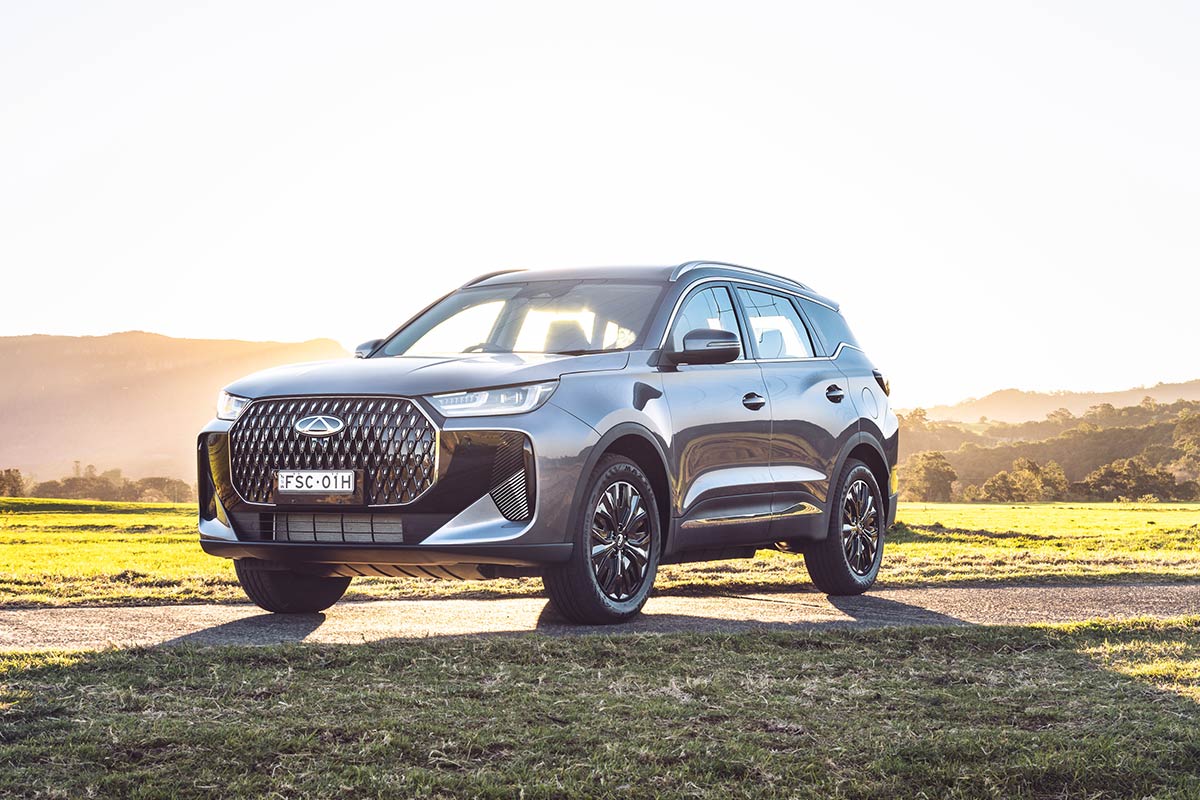
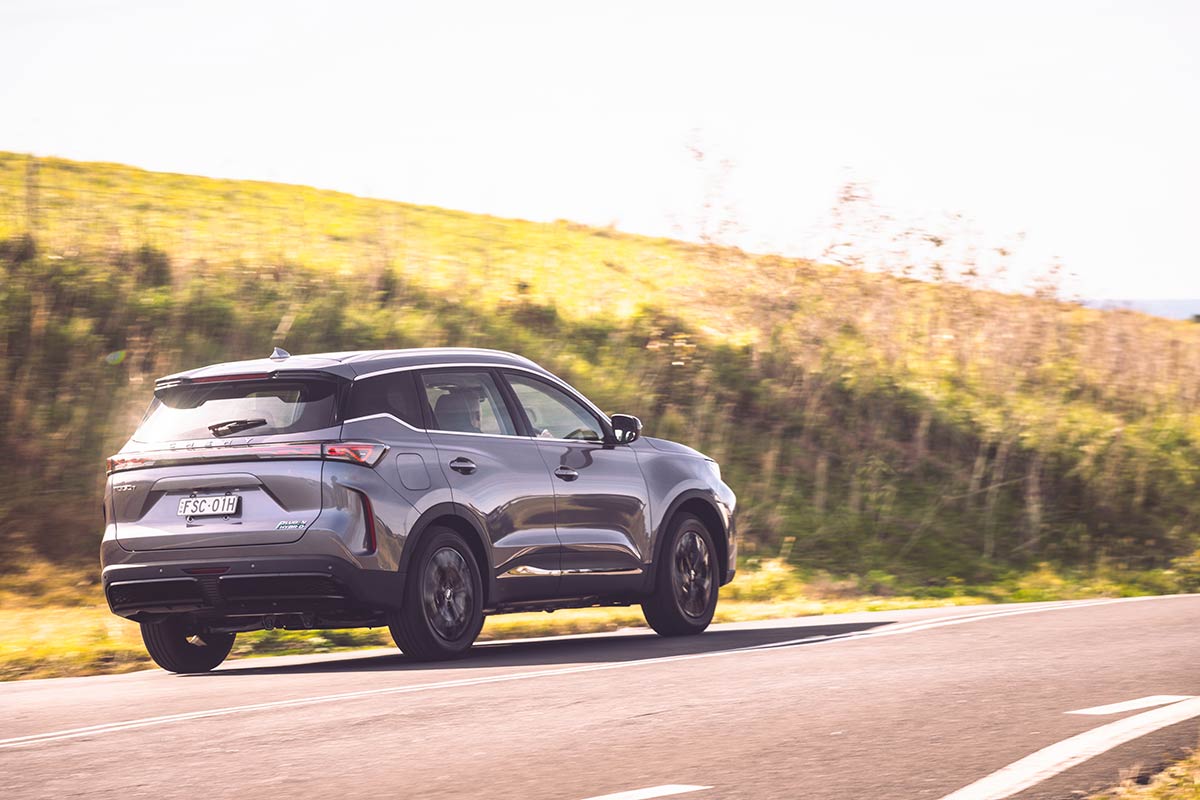
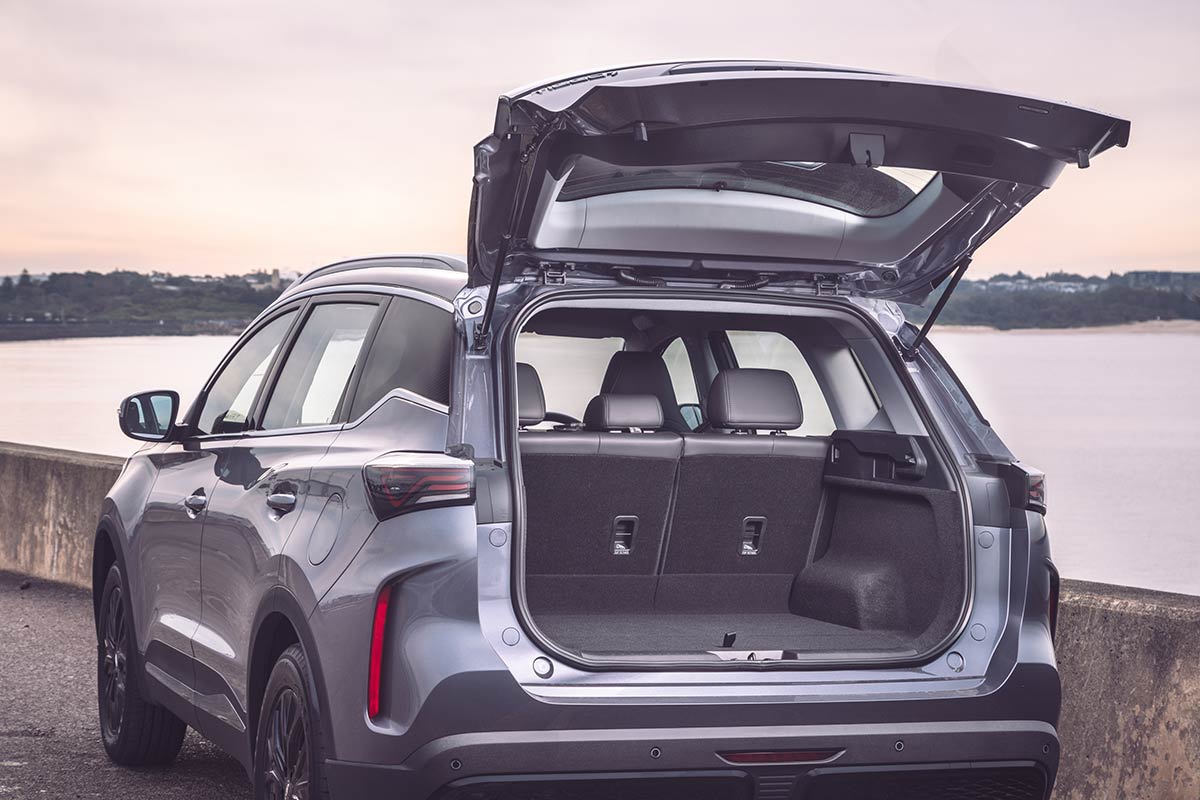
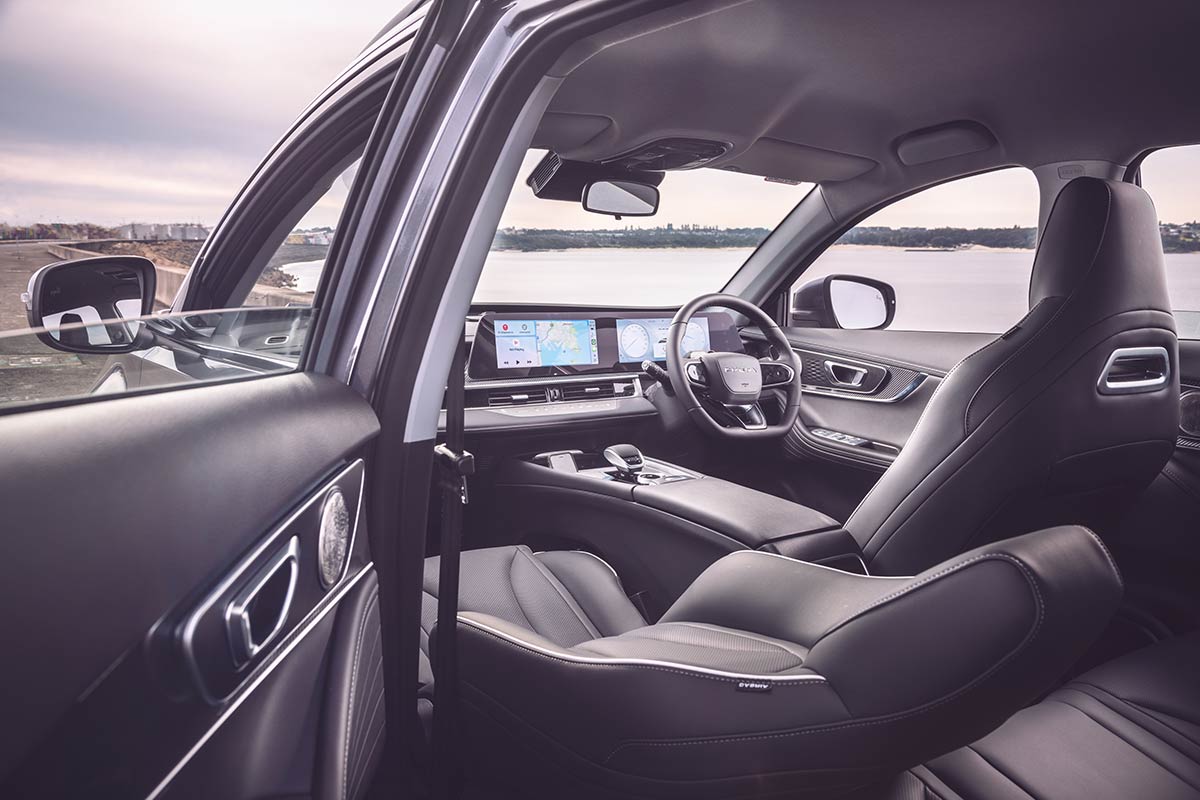
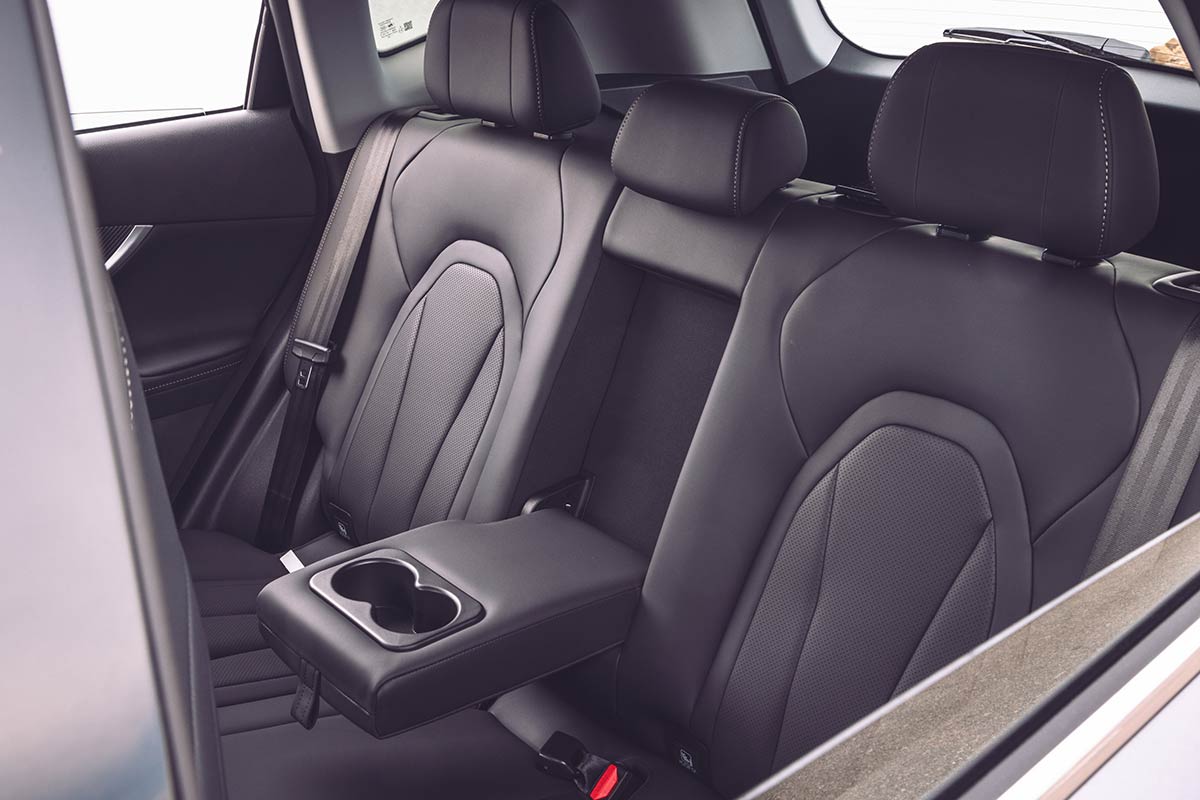
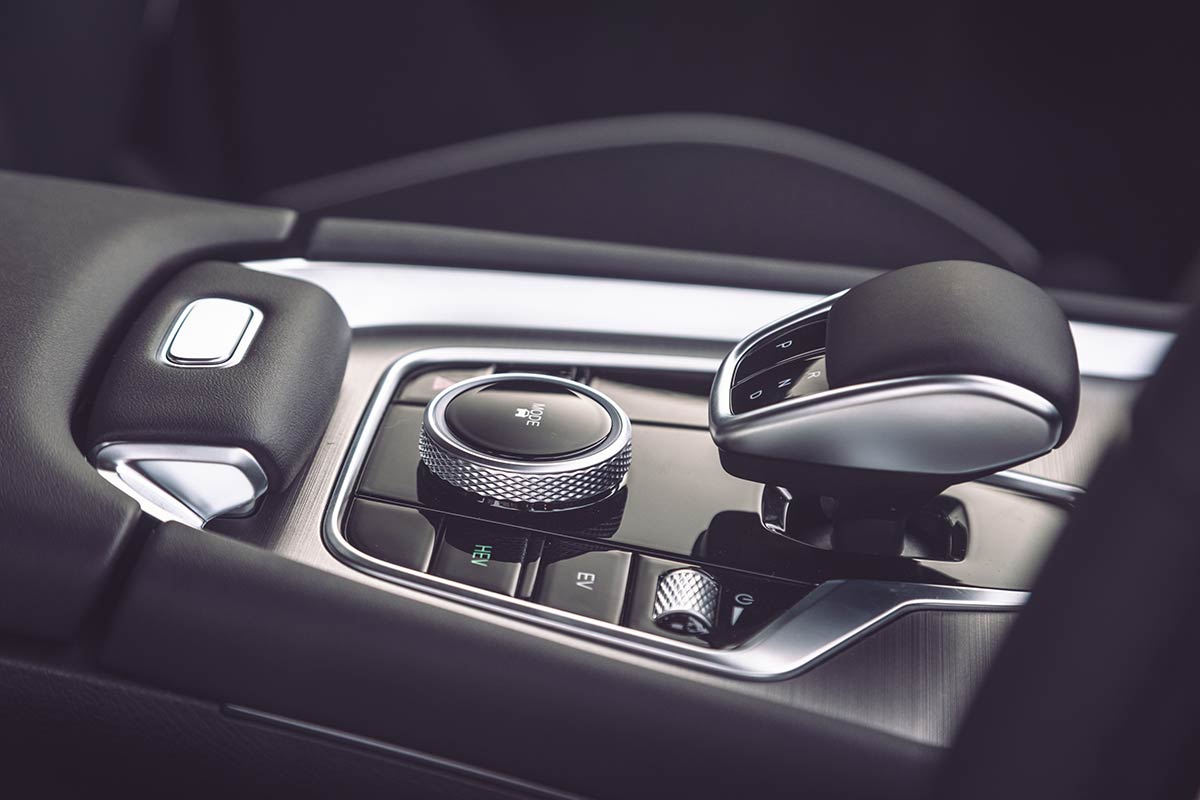
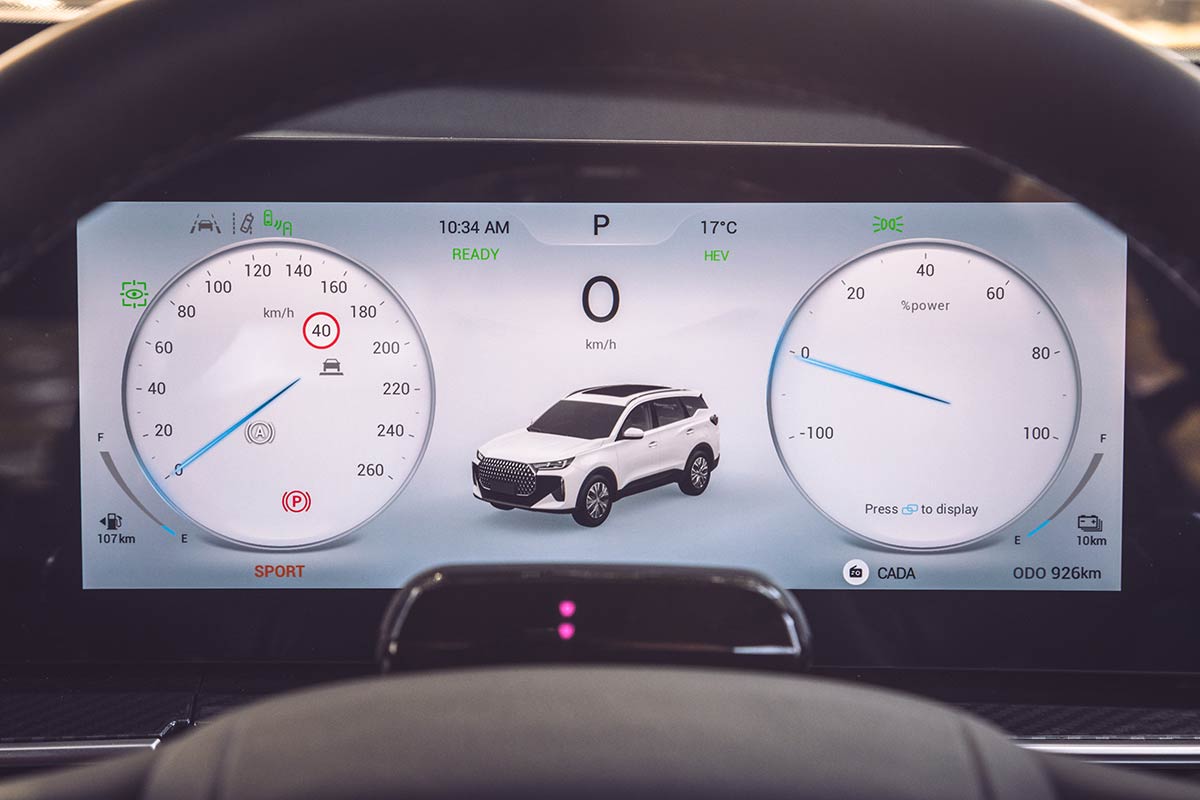


Standard equipment in the 2026 Chery Tiggo 7 Super Hybrid is more comprehensive than its lean price might suggest.
Both variants ride on 18-inch alloy wheels, with LED lighting as standard front and rear, and a six-speaker system found in Urban trim is upped to a Sony eight-speaker setup in Ultimate.
In Urban trim, only the driver scores (six-way) electric adjustment, however passengers gain it in Ultimate trim, with heating and ventilation also thrown in.
The top-tier Ultimate also picks up a panoramic sunroof (with slide and tilt), ambient interior lighting, a memory function for driver seat adjustment, 50-watt wireless phone charger, puddle lights and privacy glass for its rear half over the Urban.
At the time of writing, the 2026 Chery Tiggo 7 Super Hybrid had not been assessed by ANCAP.
However, the standard Tiggo 7 – with which the Super Hybrid variant shares its underpinnings and safety tech suite – has received a five-star safety score from ANCAP. It would not be unreasonable to assume that, when tested, the Tiggo 7 Super Hybrid may score similarly.
The Tiggo 7 Super Hybrid scores intelligent cruise assist (combining lane-centering and adaptive cruise with stop-go functionality), autonomous emergency braking (with pedestrian and cyclist detection), lane-keep assist and a driver monitoring system.
A standard-fit rear-view camera in Urban grade is also updated to a 360-degree camera in Ultimate spec.
Don’t let the marketing speak confuse you: Chery’s ‘Super Hybrid’ is a conventional PHEV in its bones , combining a combustion engine with an electric motor and battery pack that can be charged by driving or at a charging station.
The Super Hybrid’s 1.5-litre turbocharged petrol engine produces 105kW and 215Nm, and is aided by a single electric motor able to output 150kW and 310Nm. Chery doesn’t cite a combined power or torque figure from the system.
Power is sent to the front wheels via as single-speed ‘dedicated hybrid transmission’, designed to switch between four drive modes to smoothly and efficiently deploy or recoup energy depending on the driving conditions.
An 18.3kWh lithium iron phosphate (LFP) battery pack can provide up to 93km of electric-only range (via the NEDC protocol) and can run without petrol assistance at speeds up to 120km/h when above 30 per cent of charge.
Able to receive up to 40kW of DC power, Chery claims the Tiggo 7 Super Hybrid can charge from 30 to 80 per cent in as little as 20 minutes.
Driving the 2026 Chery Tiggo 7 Super Hybrid, we really had to split the car into two: ‘powertrain’, and ‘everything else’.
Chery’s Super Hybrid system is nothing short of impressive, and would get the same feedback from us even if fitted in a car some multiples of cost more expensive than the Tiggo 7.
Quietness, smoothness and overall refinement of the PHEV powertrain are as good as any we’ve ever driven. Tuning to noise, vibration and harshness characteristics often left us guessing whether we were being propelled by the petrol engine, electric motor, or both, at a variety of speeds and load demands.
Likely thanks to its transmission, the Tiggo 7 Super Hybrid offers electric smoothness in all situations we could put it in. It may not have official power and torque figures (and it does run out of gusto at and above highway speeds), but there’s enough push in the seat for us to conclude it’s not underpowered either.
Efficiency is also impressive. Chery claims the Tiggo 7 Super Hybrid will do 1200km on a 60L tank and, given the 3.8L/100km figure we saw on the car’s on-board computer during testing, this seems achievable.
It’s (almost) everywhere else that the Tiggo 7 Super Hybrid feels more aligned with its budget status – and drivers are reminded that it shares underpinnings with a sub-$30k car.
Ride and handling leave a lot to be desired. The Tiggo 7 Super Hybrid exhibits quite a stiff composure which can feel especially jarring in the rear seats. We suspect this may be due to inadequate spring and damper tuning to accommodate the extra weight of the hybrid system.
Steering feel tends towards artificial, not seeming to give drivers any more or less feedback based on what the tyres are doing beneath them, leading to quite a disconnected feeling. Combine this with a quick steering rack and the Tiggo 7 Super Hybrid tends to lull you into thinking more grip is available than there really is.
Its active safety suite is surprisingly good given the price point, with intelligent cruise keeping the Tiggo 7 Super Hybrid smoothly planted in the middle of the lane during our testing and adaptive cruise calmly adjusting to changing environments.
Lane-keep assist isn’t overly punitive either, but Chery has decided (for whatever reason) to create intervention that creates the sense your steering components have quickly seized up and freed themselves, rather than the smooth, gentle input normally found in other cars’ systems. Get used to it or drive with it off.
The 2026 Chery Tiggo 7 Super Hybrid is a bargain; there is really no two ways about it.
Its hybrid system wouldn’t feel out of place in cars priced well above that of the Tiggo 7 Super Hybrid, and while reminders rear their head from time to time that it shares its underpinnings with a sub-$30k car, the package overall remains remarkable for the price.
Pros: super affordable; great PHEV system; strong warranty and servicing
Cons: poor bump absorption; confusing infotainment; bland styling